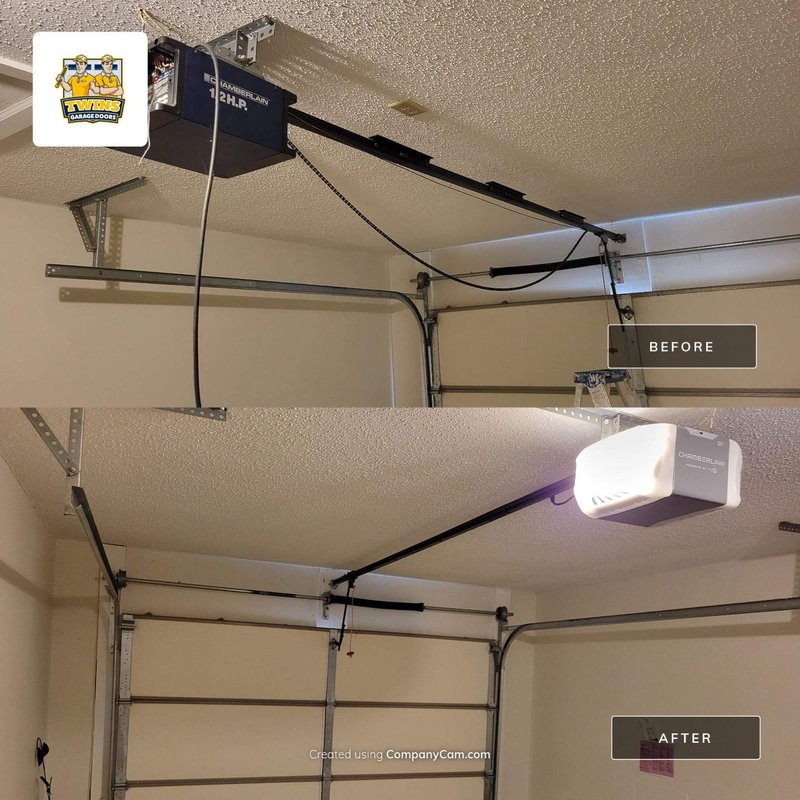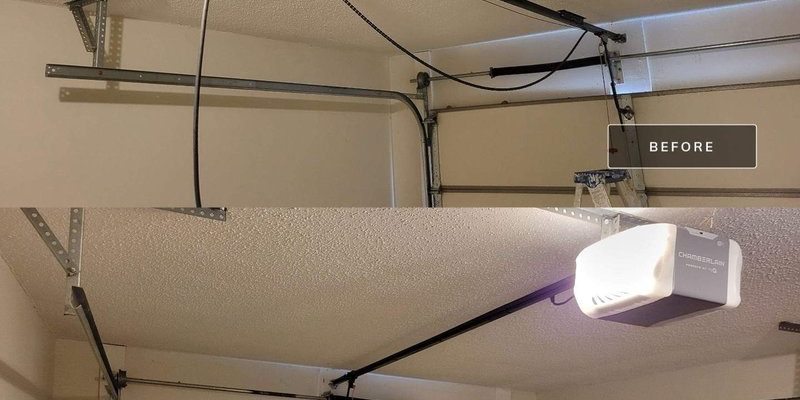
Picture this: you’ve just rolled up after a long day at work, and all you want is to glide into your garage. Instead, you’re greeted with a cacophony that makes you second-guess whether it’s the opener’s sorrowful cry or a scene from a horror movie. Let’s dig into some likely reasons your garage door opener is loud, how to troubleshoot the noise, and tips to keep things smooth and quiet.
Why Is My Garage Door Opener So Loud After Installation?
There are a few common reasons your garage door opener might sound like it’s auditioning for a rock band. Often, it can boil down to improper installation or alignment. Here’s the scoop:
1. Loose Hardware: Over time, screws and bolts can loosen, especially if they weren’t tightened during installation. This can lead to vibrations that amplify noise. Listening closely to your opener can help determine if it’s a loose part causing the racket.
2. Improper Alignment: If the opener isn’t aligned correctly with the garage door or tracks, it may struggle during operation. This struggle usually manifests as noise that can be downright annoying. Misalignment can occur if the opener is not securely mounted or if the tracks are bent.
3. Old or Worn Parts: If you’ve installed a new garage door opener but kept an older garage door, inconsistencies in age and wear can cause extra noise. Components like rollers, hinges, or the door itself may contribute to the sound if they are not in top shape.
Common Noises and What They Mean
Garage door openers can make different sounds that indicate various issues. Understanding these noises can help you pinpoint the problem.
– Grinding or Scraping: This noise often signifies that there’s a problem with the door’s track or rollers. The door might not be rolling smoothly, which could lead to wear over time.
– Banging or Slamming: If your garage door sounds like it’s being dropped from a height, the force could be due to misalignment or failing springs. This isn’t just loud; it can also be dangerous.
– Whining or Screeching: High-pitched sounds can point to a lack of lubrication in the moving parts. This is one of those simple fixes, but ignoring it can lead to bigger issues.
How to Troubleshoot a Noisy Garage Door Opener
You might be wondering how to tackle this sound issue. Let’s break down some actionable steps.
1. Inspect All Fasteners: Grab a screwdriver or wrench and check every bolt and screw on your opener and the door. Ensure everything is tight and secure—but don’t go overboard and strip the screws!
2. Evaluate the Alignment: Check if your garage door opener is aligned with the door tracks. If it seems crooked or wonky, you’ll want to adjust it. Leveling it out can reduce noise significantly.
3. Look at the Rollers and Tracks: Inspect your door rollers and tracks for any signs of wear or damage. If you spot any issues, replacing these parts might just cure the noise headache.
Adjusting the Opener’s Settings
Modern garage door openers come with various settings. Adjusting these could potentially lessen the sound.
– Force Settings: Many openers allow you to change the force needed to open and close the door. If it’s set too high, it can cause loud noises. Lowering the force might reduce stress on the door and opener.
– Travel Settings: If your garage door doesn’t stop in the correct position, it could create noise when attempting to open or close. Adjusting the travel limits can help with this.
If All Else Fails, Lubricate Everything
One of the simplest fixes might surprise you: lubrication. Here’s how to do it:
1. Choose the Right Lubricant: Use a silicone-based lubricant or a garage door-specific product. Avoid grease, as it can attract dust and grime over time.
2. Apply Lubricant: Focus on hinges, rollers, and the tracks. A little goes a long way here.
3. Open and Close the Door: After lubricating, manually open and close the door a few times to spread the lubricant evenly. You might notice a quiet difference right away!
Possible Manufacturer Issues
Sometimes, it’s not you, and it’s not your garage door opener—it’s the product itself. Some brands may have quality control issues that lead to annoying sounds. If you suspect this is the case, consider the following:
– Warranty Considerations: Check if your opener is still under warranty. If it is, you can contact the manufacturer for assistance or a replacement.
– Online Reviews: Do a little digging in product reviews. You might find others share your noise complaint, which could lead to a potential manufacturer defect.
The Importance of Regular Maintenance
Once your garage door opener is quieter, maintain it to keep it that way. Here are some upkeep tips:
– Routine Checks: Regularly inspect the hardware, tracks, and lubrication.
– Watch for Wear: Be aware of any unusual sounds that crop up after getting it all quiet. Early detection is key.
– Professional Maintenance: Consider hiring a professional for an annual tune-up. They can spot things you might miss!
When to Call in the Experts
Sometimes, DIY solutions might not cut it. If your garage door opener remains loud despite your troubleshooting, it might be time to call a professional. Here’s when to step back:
– Persistent Noises: If the noise continues after adjustments, you may need expert evaluation.
– Structural Issues: If you suspect problems with the door’s frame or the opener’s mounting, a pro can assess without risking injury.
– Safety Concerns: No one should mess around with heavy machinery without proper knowledge. If you feel uncomfortable, it’s wise to let someone with experience handle it.
If your garage door opener is louder than you’d like after installation, there are plenty of avenues to explore. From checking for loose screws to lubricating moving parts, many solutions are just a few steps away. Understanding the noises and being proactive can save you stress, not to mention a little embarrassment when neighbors hear your garage door roar.
With a little patience and some troubleshooting, you can enjoy the quiet convenience of your new opener in no time. So, grab your tools, turn down that noise, and reclaim your garage from the outrageous racket!
